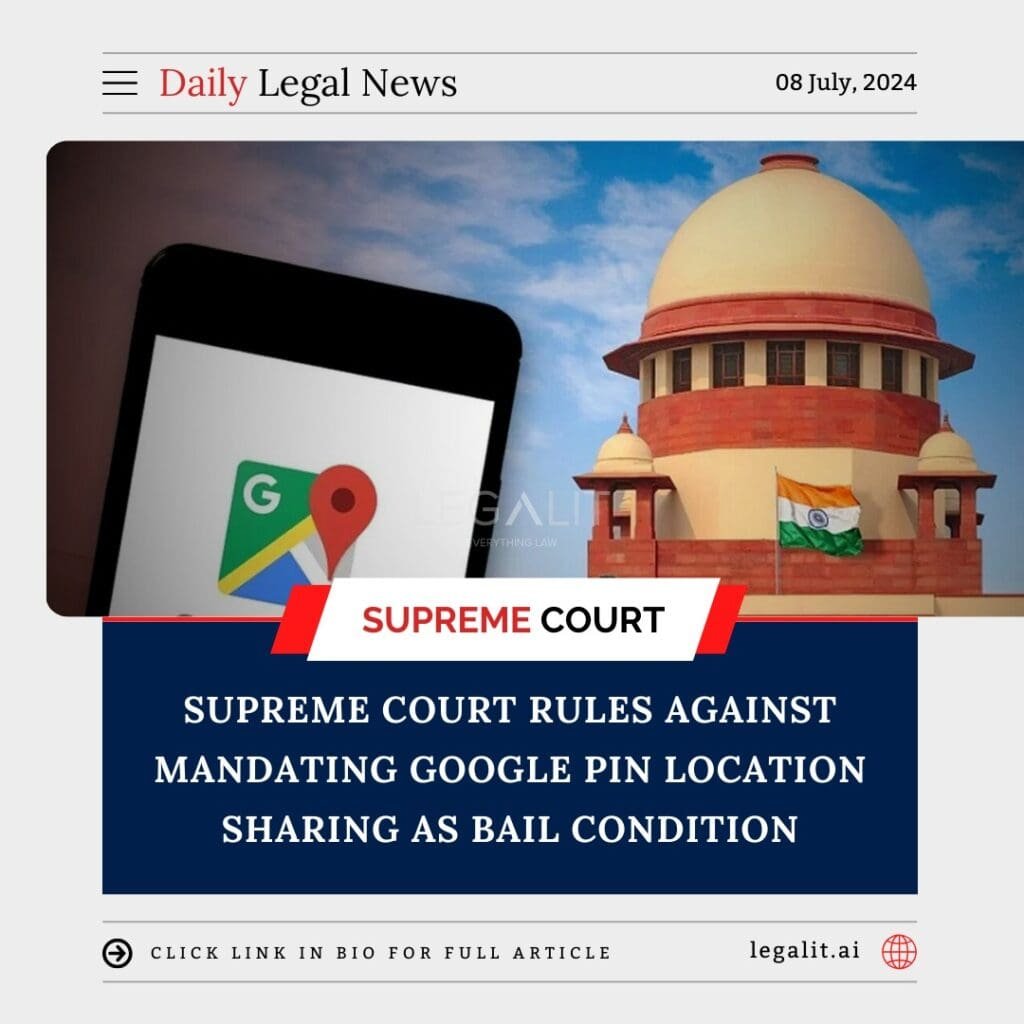
In a landmark decision, the Supreme Court of India has ruled that courts cannot mandate the sharing of an accused’s Google pin location as a condition for granting bail. This ruling addresses significant concerns about privacy and the legal boundaries of bail conditions.
Background of the Case
The case arose from a lower court order that required an accused individual to share their Google pin location with authorities as a condition for bail. The condition was intended to ensure the accused’s presence during investigations and trial proceedings. However, the accused challenged this requirement, arguing that it infringed on their right to privacy and was an excessive and unreasonable bail condition.
Supreme Court’s Rationale
The Supreme Court’s decision to quash the lower court’s order was based on several key considerations:
- Right to Privacy: The Court highlighted that the right to privacy is a fundamental right under the Indian Constitution. Mandating the sharing of an individual’s precise location data without their consent infringes upon this right. The Court referenced the landmark judgment in the case of Justice K.S. Puttaswamy (Retd.) vs Union of India, which affirmed the right to privacy as an intrinsic part of the right to life and personal liberty under Article 21.
- Reasonableness of Bail Conditions: The Court emphasized that bail conditions must be reasonable and should not be punitive. Conditions imposed must relate directly to ensuring the presence of the accused during trial and should not violate fundamental rights.
- Lack of Legal Basis: The Supreme Court pointed out that there is no statutory provision in Indian law that allows courts to impose such a condition. The absence of a legal framework to support the sharing of real-time location data as a bail condition makes it an arbitrary requirement.
- Potential for Misuse: The Court also expressed concerns about the potential misuse of such sensitive data. Real-time location tracking could lead to significant privacy violations and abuse of power by authorities.
Implications of the Ruling
This ruling has far-reaching implications for the legal system and the rights of accused individuals:
- Setting a Precedent: The decision sets a precedent for lower courts, clarifying that privacy rights must be upheld in the imposition of bail conditions.
- Protecting Privacy: By ruling against the compulsory sharing of Google pin locations, the Court has reinforced the protection of personal data and privacy.
- Guidance for Future Cases: The judgment provides guidance on the limits of reasonable bail conditions, ensuring that they do not infringe on fundamental rights.
Reactions to the Decision
The Supreme Court’s ruling has garnered mixed reactions:
- Privacy Advocates: Privacy advocates have lauded the decision, viewing it as a critical step in protecting individual rights in the digital age.
- Legal Experts: Many legal experts agree with the ruling, emphasizing the importance of balancing law enforcement needs with constitutional rights.
- Law Enforcement Concerns: Some law enforcement officials have expressed concerns that this decision may make it more challenging to monitor accused individuals and ensure their compliance with bail conditions.
Conclusion
The Supreme Court’s ruling that courts cannot require accused individuals to share their Google pin location as a condition for bail marks a significant affirmation of privacy rights in India. This decision underscores the judiciary’s role in safeguarding constitutional rights while ensuring that legal processes remain fair and just. As the legal landscape continues to evolve with technological advancements, this ruling sets a critical benchmark for the protection of individual privacy against unreasonable intrusions.